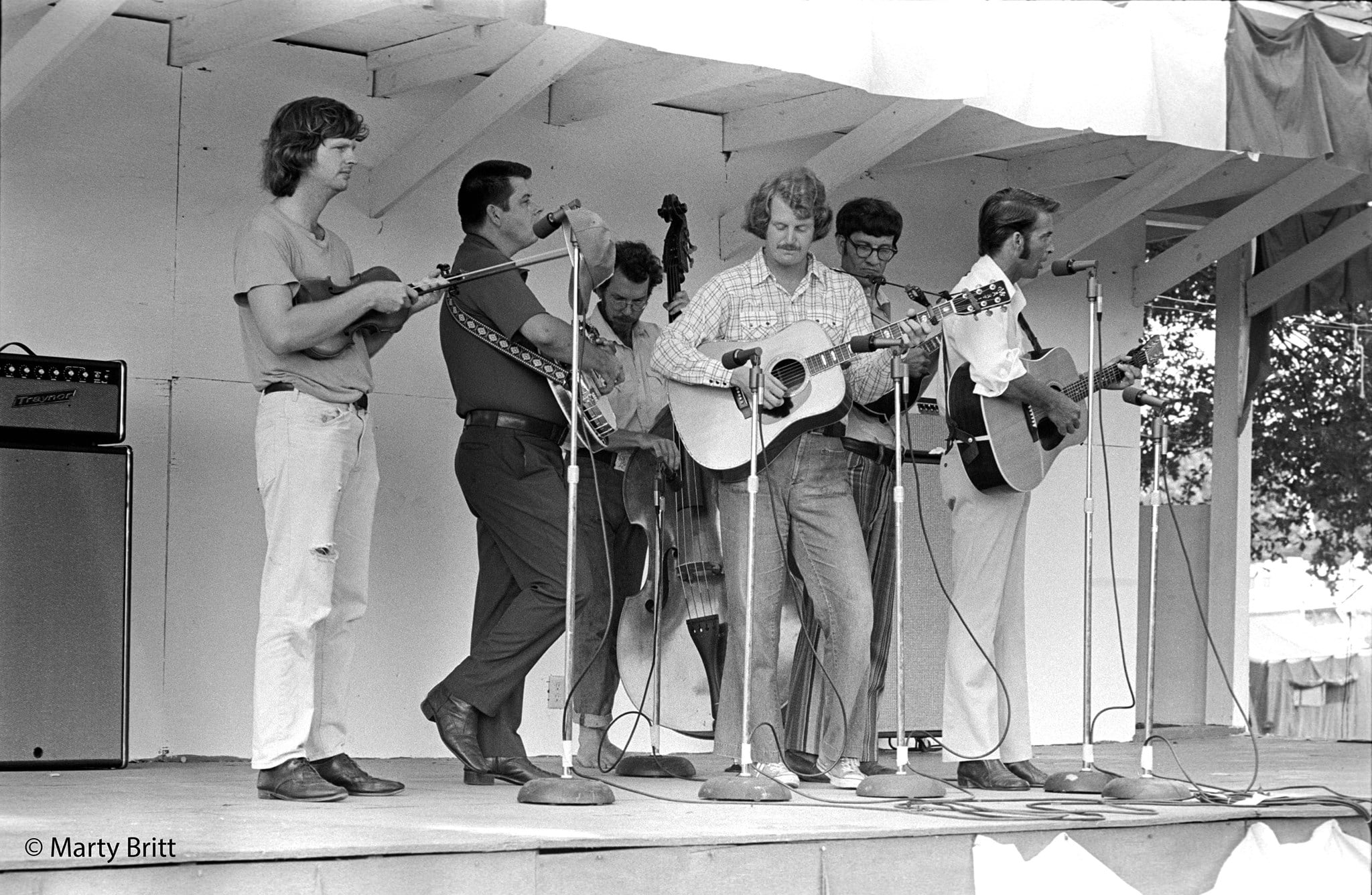
Bluegrass is many things. It's fun. It's comforting. It's full of joy. But above all bluegrass is innovative.
Bluegrass was born out of the the string band tradition. Fiddle, banjo, guitar and bass were at the core with the mandolin and resophonic guitar (dobro) joining later. The string bands played for square dances, cloggers and frolics all across the country from the Civil War era to the early part of the 20th Century. The sound started to change In the late 1930's and early 1940's as bands tried to create a distinctive sound for their records. Experiments with new methods of playing the traditional instruments resulted in a fast paced music that emphasized vocals and solo instrumental leads. This new sound was called bluegrass after one of the most influential bands, Bill Monroe and his Kentucky Blue Grass Boys.
In 1945 Bill Monroe put together the famous "original" Blue Grass Boys that included Lester Flatt on guitar, Chubby Wise on fiddle, Cedric Rainwater on bass, and Shelby, NC, native Earl Scruggs on banjo. Scruggs brought with him a sensational three-finger, rolling banjo style that rejuvenated the 5-string banjo, made his own name preeminent among country and folk musicians, and helped to establish bluegrass as a national phenomenon.
The Scruggs' banjo technique represented a modification and perfection of traditional banjo styles that existed in the Piedmont region of North Carolina; where it was played by local banjoists as well as professionals like Snuffy Jenkins, of Harris, NC, and Wade Mainer, who was based in Raleigh for a period of time.
Bill Monroe and the Blue Grass Boys drew liberally on the old time string band sound but, reflecting Monroe's early influences, also incorporated elements of the blues, ragtime, jazz, and gospel into a hard-driving style that was different from the string bands of the 1920's and 30's. In his later years Bill Monroe often cited Arnold Shultz as an influence. Shultz was an African American fiddler and guitar player who is said to be one of the first known players to take a break while playing a fiddle tune. This is a key piece of the bluegrass style.
Within this framework of soloist and band, Monroe's virtuosic musicians performed a variety of songs: slow and medium tempo blues, fast breakdowns, religious pieces, medium to fast tempo love songs, and waltzes. They played fast and clean, and sang with impeccable harmony that included Monroe's high, lonesome sound.
Raleigh is now a focal point for contemporary bluegrass. In 2013 PineCone helped facilitate the move of IBMA's World of Bluegrass weeklong event to Raleigh. The week includes the IBMA Business Conference, the Bluegrass Ramble club showcases for emerging bands, the IBMA Bluegrass Music Awards. The week is capped off by IBMA Bluegrass Live! powered by PNC. It's a festival that has become one of the City of Raleigh's signature downtown events.
IBMA's World of Bluegrass draws tens of thousands of musicians, industry professionals and fans out onto the streets of downtown Raleigh to celebrate the music. It is widely recognized as "the most important week in bluegrass."
